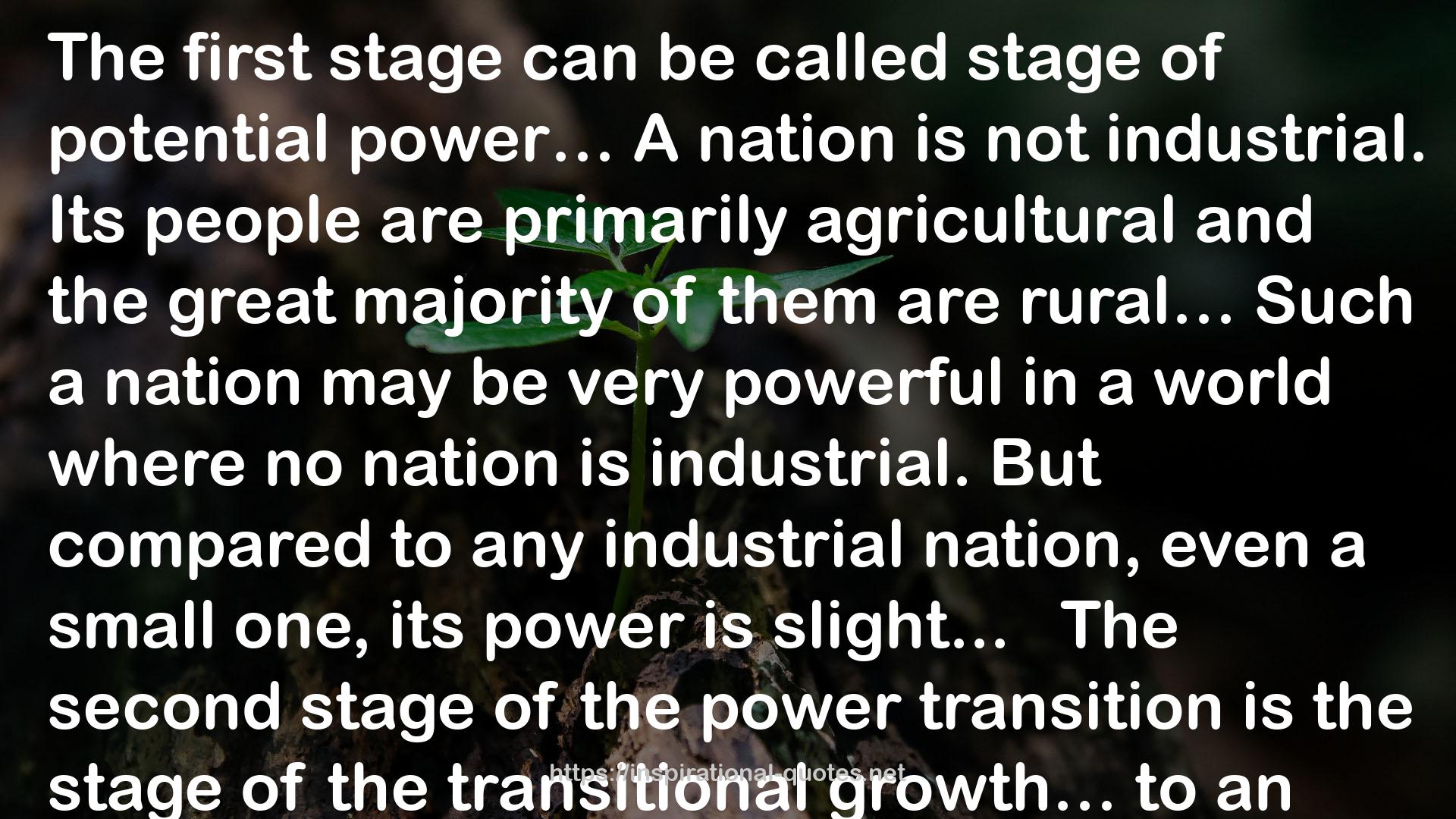" The first stage can be called stage of potential power… A nation is not industrial. Its people are primarily agricultural and the great majority of them are rural… Such a nation may be very powerful in a world where no nation is industrial. But compared to any industrial nation, even a small one, its power is slight...
The second stage of the power transition is the stage of the transitional growth… to an industrial stage… its power grows rapidly relative to that of the other pre-industrial nations whom it leaves behind.
Fundamental changes take places within the nation. There is great growth in industry and in the cities… Large number of people move out of farming and into industry and service occupations… They move from the country-side to the growing cities. Productivity per man-hour rises, the national income goes up sharply… Nationalism runs high and sometimes finds expression in aggressive action toward the outside…
So many of these changes have the effect of increasing the ability of the nation`s representatives to influence the behavior of other nations, i.e. of increasing the nation`s power… The changes that occur at the beginning of the industrialization process are qualitative, not just quantitative. It is these first fundamental changes that brings the great spurt in national power.
Of course, the speed at which a nation gains power depends largely upon the speed with which she industrializes, and both these factors have a great influence on the degree to which the rise of a new power upsets the international community (302-304). "
― , World Politics
Image for Quotes

